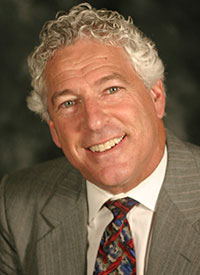Nov 18, 2015
Why Do I Feel So Overwhelmed During The Holiday Season?
If the holiday season is supposed to be an exciting and joyful time of the year, filled with friends, family, and cheer, why is it that we often become our worst selves during this time? According to a study by the American Psychology Association, 61% of respondents claim to experience stress during the holidays, and 68% experience fatigue. The study also showed that women, and lower income individuals were more likely to experience stress during the holidays. A variety of factors including job related stress (worrying about getting work done during vacation); sedentary behaviours with increased eating; increased spending for travel and gifts; and pressure to please friends and family can contribute to elevated stress levels, and reduced emotional intelligence and decision making abilities.
Dr. Relly Nadler, clinical psychologist and emotional intelligence expert explains why we often experience irritability, fatigue, and stress during the holidays, inevitably leading to reduced satisfaction and joy. Nadler uses an acronym to explain the DIRE steps leading to this phenomenon.
- Decision fatigue:
Take shopping, for example. Each thing we see or think of is full of decisions: Is there going to be a lot of traffic, what I the quickest way to get there, where should I park, is this right gift, what about color, size and price, should I get it now or later, do I want it gift wrapped, what is the return policy, how many days, how much have I already spent on this person, what is it they got me last year, is this in line with what I bought for others, will they love it? Whew!
These are micro-decisions that proliferate during the holidays – each decision we make drains a bit of our cognitive energy. This “decision fatigue” affects our impulses and quality of decisions. We don’t have a fuel gauge like we do in our car to indicate our “cognitive budget” is running on empty. Decision fatigue helps explain why people get angry at colleagues and families, splurge on clothes, and buy junk food at supermarkets.
- Inflated expectations:
Most of us go into the holidays with unrealistic expectations of how special and satisfying this time will be for us. Our expectations are fueled by our memories and the media just how extraordinary these days will be.
We expect to give and receive the perfect gifts from our loved ones, and we expect our families to be loving, supportive and compassionate during these encounters. If reality doesn’t meet our expectations, we experience disappointment, resentment, and stress – reducing our ability to be our best selves.
- Reactive and regressed
When these internal expectations are different than our external reality an “error message” occurs in the brain. This sets off an emotional reaction housed in the amygdala. Our blood and oxygen leave our prefrontal cortex, the seat of executive functioning to fuel this “crisis.” A sign hangs on the prefrontal cortex “out for lunch or closed for business.” Our primitive brain has hijacked us.
We become that worse version of ourselves. The cognitive fuel that could have helped us drive to more constructive reactions and decisions has been used up and we are operating on cognitive fumes.
- Emotional Hurts and Worry
The last culprit that presents itself at the holidays are our emotional hurts. This occurs not only from the present disappointments from how it should be, but the old hurts and wounds ooze open especially in scenarios when there is family animosity.
What can be done to reduce stress, and increase joy during the holiday?
Stresses of time, money, unrealistic expectations and emotional fatigue all contribute to unfavorable behaviors and feelings during the holidays, but there are actions we can take to improve our emotional intelligence, and reduce stress during these times. Nadler uses an acronym to explain how we can stay REAL during the holidays:
- Realistic Expectations:
One strategy is to be very specific about one realistic goal for each of your most important people. This way you can be off autopilot and have at least one clear objective to accomplish with key people. So think of each person, what is something you want to say or do from your heart to or with this person. It could be an unexpressed emotion, a sentiment, long walk or something that needs closure between you and them.
This can help you stay focused and can feel good about having quality moments with these people despite whatever chaos is going on. Psychologists call this a “pre-commitment” and will help achieve meaningful moments.
- Experience the moment, Enhance your focus and empathy
Can you stay present and really be with people? This is an opportunity to practice mindfulness and enjoy the moments. One sure way for you to feel connected to others and them to you is to be an outstanding listener.
Before you meet with family or friends, take 5 minutes to set your course on how you want to be with them. Short visualizations of being that way with them can help you prepare.
- Accept and Let Go skills
Another strategy that will help to go from hijack to happiness is to accept the situation and people as they are. We all make snap judgments and often attribute intent to someone’s behavior. Did someone react poorly to a nice gift you gave them, or did your in-laws make a terrible remark about your political views?
Can you suspend your first judgment and come up 2-3 other interpretations of the situation or the person. Each one will usually be more constructive and accurate. The more you suspend your judgments the better you will feel.
Questions like the one below can help you refocus and let go:
- Am I 100% sure that was their intention?
- Could I be wrong with this interpretation?
- What else could be going on for them?
- How do I let my reaction go until I get more information?
- What can I say to inquire more without sounding defensive?
Accept, move forward, and let go; the goal is to accept and move forward or redirect your thoughts and feeling versus staying automatic and looking for evidence that conforms to your judgments or poor assumptions.
- Love and Learn
Another holiday action to happiness includes truly thinking ahead of time of the compassion and love you have for each of your family members and others.
When we stay automatic it is easy to focus on what is wrong versus what is right. Part of your realistic expectations above is to share what you love, admire and are impressed with for your special people.
Dr. Relly Nadler is a leading thinker on emotional intelligence.
The content writers at BigSpeak Speakers Bureau are Experts on the Experts. They hold doctoral, masters, and bachelors’ degrees in business, writing, literature, and education. Their business thought pieces are published regularly in leading business publications. Working in close association with the top business, entrepreneur, and motivational speakers, BigSpeak content writers are at the forefront of industry trends and research.
Speaker
Tags

 Relly Nadler
Relly Nadler